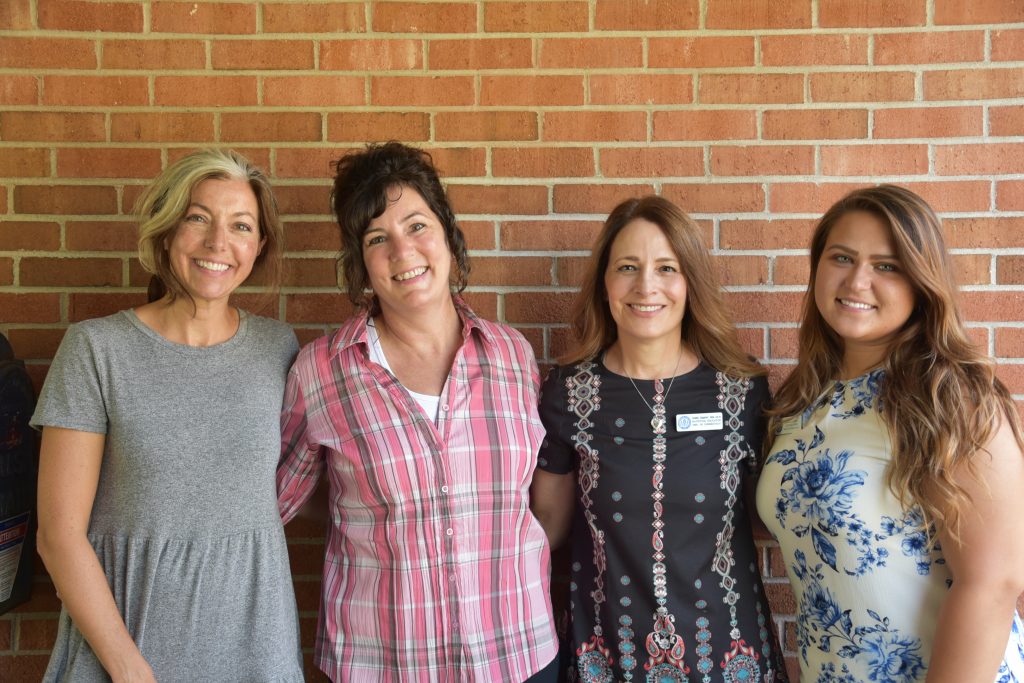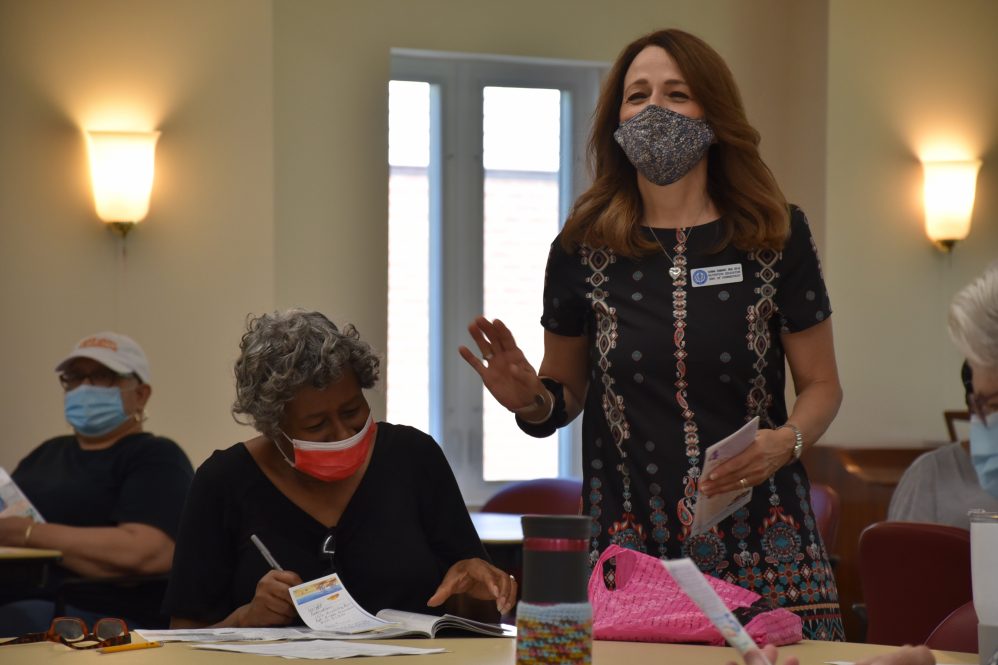This summer, the UConn Healthy Family CT SNAP-Ed program within the College of Agriculture, Health and Natural Resources (CAHNR) expanded its nutrition education programming that encourages healthy eating for low-income older adults.
The Supplemental Nutrition Assistance Program (SNAP) is a federal program designed to help low-income individuals afford healthy food. SNAP-Ed adds the all-important educational aspect to help people understand nutrition and become informed shoppers.
“Part of the SNAP-Ed program is to provide nutrition education to those who are most in need so they can use their food dollars wisely,” UConn SNAP-Ed registered dietitian Donna Zigmont says.
UConn Healthy Family CT SNAP-Ed provides fact-based food and nutrition information centered on scientific evidence and key nutrition messages from the US Dietary Guidelines for Americans and USDA’s MyPlate principles.
[We] provide nutrition education to those who are most in need so they can use their food dollars wisely. — Donna Zigmont
The Healthy Family CT SNAP-Ed team includes educators like Zigmont and students enrolled in the dietetics program in the Department of Allied Health Sciences. These students gain valuable experience working with communities in need, and community members receive knowledge and practical tools to improve diet quality from the trained students.
In 2020, even with the COVID-19 pandemic disrupting several normal programming activities, UConn HFCT SNAP-Ed reached 70,097 people with 329 programming sessions, primarily in the greater Hartford area. The HFCT SNAP-Ed team also rolled out a new website, Healthy Family CT, which provides valuable information about nutrition, using SNAP benefits to shop for food online, and a nutrition game to help children make healthy eating choices.

This summer, HFCT SNAP-Ed significantly expanded its partnership with West Hartford Fellowship Housing, an independent living community. UConn HFCT SNAP-Ed established this partnership a decade ago and has been providing monthly programming for them. One of the major themes of these sessions is eating and cooking on a budget, an important consideration for SNAP recipients.
Each program session covers a specific nutrition topic, such as eating and cooking with whole grains or the importance of fiber in your diet. The sessions include a cooking demonstration that reinforces the nutrition topic covered. At the end of each session, participants receive a take-home program reinforcer which is usually a basic kitchen tool to assist them in making the recipe demonstrated. Items have included a lemon juicer, measuring cup, and cutting board.
This summer, the Fellowship received a grant from the West Hartford Greater Together Community Fund awarded by the Hartford Foundation for Public Giving to collaborate with a local farm (Rosedale Farms & Vineyards in Simsbury) to provide residents with fresh produce to complement the HFCT SNAP-Ed lessons and cooking demonstrations.
“They go hand-in-hand,” Zigmont says. “If [SNAP beneficiaries] don’t have access to healthy food, how can residents gain self-confidence with the preparation of a variety of healthy foods? Once they have access, they need to be educated about how to use these foods.”
The summer program, referred to as the Fresh Start Program, emphasized the benefits of seasonal eating. By understanding what produce is in season in Connecticut at different times of the year, people can identify fresh and low-cost fruits and vegetables for year-round healthy eating.
The Fellowship also worked with The Nutmeg Spice Company, based in Terryville, to provide seasonings for food demonstrations and resulted in a specific lesson on using herbs and spices instead of salt to season food.
Participants learned how to make recipes like a summer squash medley, caprese salad, and stuffed peppers in a crock pot, which was the final program reinforcer participants took home with them.
“It was encouraging healthy eating and showing that cooking at home is not very difficult – anyone can do it,” says Isabella Gorski, a student in the master’s of health promotion sciences program. Gorski crafted and led the weekly lessons for the Fresh Start Program.
Zigmont says showing people how to make these foods and letting participants taste them helps empower individuals to make the recipes on their own.
“Tasting is believing,” Zigmont says. “A lot of people are turned off by certain foods because they don’t know how to prepare them and, therefore, think they won’t like them.”
Dee Asvestas, a resident at the fellowship participated in the Fresh Start Program.
“Every program was unique and held our interest,” Asvestas says. “You’re never too old to learn new things.”
Gorski says one of her most successful lessons is when she taught participants to “eat the rainbow” and understand how to us a colorful variety of produce.
“It encouraged them to try new fruits and vegetables and go out of their comfort zones,” Gorski says.
The lessons include pre- and post-participation evaluations to determine participants’ knowledge before and after the lessons, in addition to willingness and motivation to change their behavior after the lesson. The post-participation survey asks participants to commit to a single attainable goal, such as making the recipe on their own, or using less salt and more herbs and other spices when cooking that week.
Gorski says she hopes education programming focused on older adults will continue and expand as much of the focus of nutritional education is typically on young children.
“We often forget about the older population,” Gorski says. “They want to learn as badly as young kids do.”
Zigmont says the Fellowship is looking to reapply for funding to run this program again next summer, possibly incorporating a gardening education project.
“Without a doubt, it was really a great success,” Zigmont says. “People loved it and really appreciated it.”
Follow UConn CAHNR on social media



